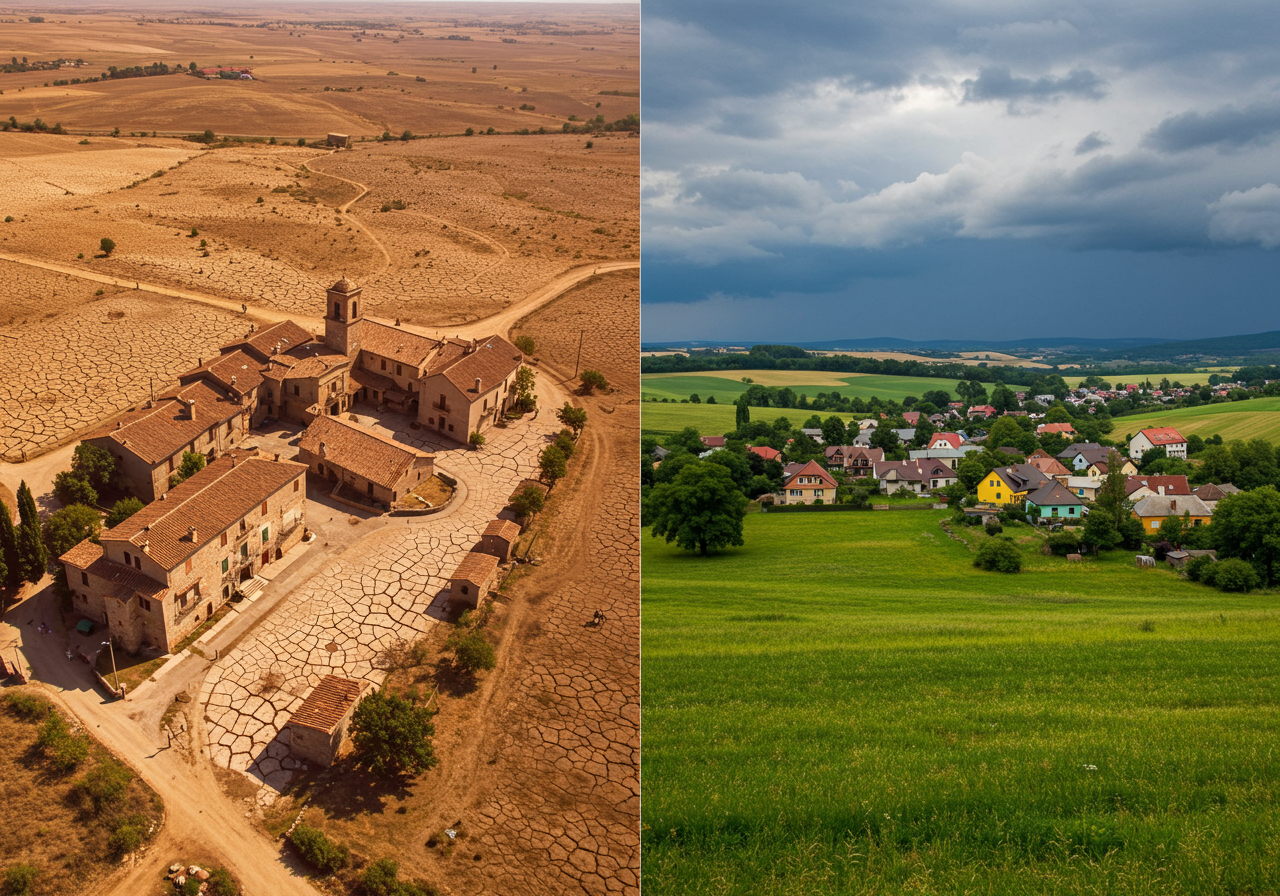By Kristina Vankova
Europe is once again grappling with a ferocious heat wave, as sweltering temperatures blanket the southern part of the continent. This latest wave of oppressive heat has already claimed lives in Spain and continues to cause widespread discomfort and concern for residents and visitors alike.
This intense heat wave, which has seen temperatures soar as high as 46 degrees Celsius, has been particularly severe in Spain. Tragically, the extreme conditions have resulted in at least one death, highlighting the dangerous impacts that such weather phenomena pose to public health and safety. In addition to tangible human suffering, the heat wave has strained infrastructure and increased the risk of wildfires, a constant threat during Europe’s warmer months.
The Extent and Impact of the Heat Wave
In Spain, cities such as Seville have been experiencing unprecedented temperatures, with local authorities issuing warnings advising people to remain hydrated and avoid the sun during peak hours. These advisories are crucial as continuous exposure to such high temperatures can lead to heat exhaustion or even heatstroke, especially among vulnerable groups including the elderly, children, and those with pre-existing medical conditions.
The heat wave is not using Spain’s geography to its advantage either; regions close to the coast, which would typically enjoy cooler temperatures, find no respite as ocean winds fail to temper the blistering heat. Even the traditionally cooler northern areas of the country have not been spared, demonstrating the erratic nature and wide reach of this extreme weather.
A Broader European Challenge
While Spain has been particularly hard hit, the heat wave’s impact is not limited to one country. Across Southern Europe, nations including Italy, Greece, and Portugal are experiencing skyrocketing temperatures that disrupt daily life and elevate public health risks. Beaches, usually packed during summer, are eerily sparse as tourists and locals seek shelter from the heat.
In Italy, cities like Rome and Florence have been logging temperatures well above their seasonal averages, leading to increased demand for energy as air conditioning units run non-stop to provide relief. The national grid faces significant pressure, and utility companies are warning of potential brownouts should the situation persist. Greece, too, faces similar challenges, compounded by the threat of wildfires—a grim but familiar reminder of the devastation of summer 2021.
Preparations and Preventative Measures
Governments across Europe are taking steps to mitigate the effects of the heat wave. Public service announcements have been issued, advising residents to stay hydrated, limit outdoor activities, and take advantage of cooling centers established in many urban areas. These centers provide an air-conditioned refuge for those unable to cool their homes adequately.
Infrastructure is being closely monitored as well, with road and rail networks under strain from the heat. Authorities are advised to closely inspect these networks, as extreme temperatures can warp rails and buckle asphalt—a safety risk with potentially severe consequences.
The Czech Republic, while currently experiencing milder conditions, is preparing for the incoming wave of heat. Meteorologists predict that the rise in temperatures will reach the country in the coming days, prompting officials to pre-emptively issue warnings similar to those in Southern Europe. The Czech Republic’s experience with milder summer weather means its population is less acclimatized to such extremes, raising concerns about public health preparedness.
An Urgent Call for Climate Action
The swathes of extreme heat gripping Europe are more than just a temporary climatic anomaly; they represent a critical indicator of broader environmental issues. Climate scientists and environmentalists point to human-induced climate change as a significant factor exacerbating the frequency and intensity of these heat waves. Increased levels of greenhouse gases are attributed to warming global temperatures, leading to more severe and prolonged heat events.
As Europe grapples with these challenges, there is a renewed urgency among policy-makers and environmental advocates to escalate climate action. Investing in renewable energy, enhancing energy efficiency, and implementing stringent emissions regulations are seen not only as strategic moves but as necessary steps to mitigate the impact of climate change on future weather patterns.
The Path Forward
In the face of these overwhelming heat waves, individuals are being urged to remain vigilant and proactively manage their health. It is crucial for community services to be responsive and for local authorities to effectively communicate risks and safety recommendations to the public. With climate forecasts predicting a future where such conditions may become more frequent, preparing society to adapt to this ‘new normal’ is essential.
Ultimately, the current situation underscores a pivotal call to action for more sustainable living practices and robust climate strategies. As Southern Europe contends with yet another record-setting summer, the world is watching closely, hoping that this serves as a catalyst for enhanced global cooperation in addressing climate change, protecting ecosystems, and ensuring the health and safety of all populations.
